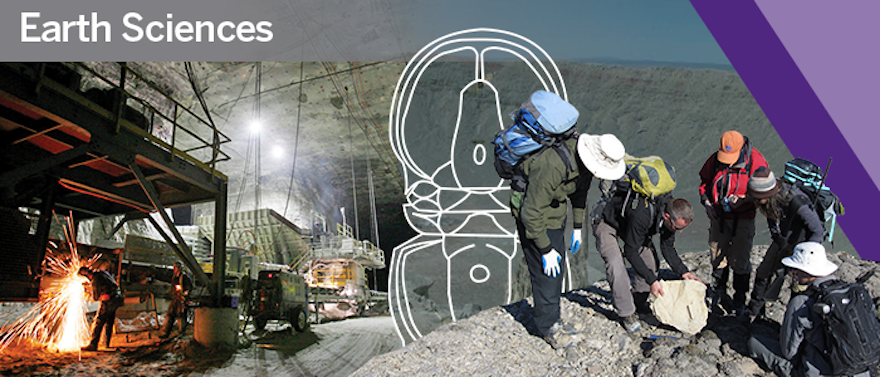Earth Sciences

Earth Science is the study of the history, structures, and processes that shape planet Earth. Earth Science involves a significant breadth of topics from planetary structure and composition, plate tectonics, earthquakes and volcanoes, natural resources, and the history of life on Earth. Although the profession focuses on opportunities to explore, extract, analyze, understand and monetize raw planetary materials, an equally important and rapidly evolving segment of an Earth Scientist’s career focuses on the protection of Earth and its most precious natural resources.
Are you interested in developing sustainable solutions to environmental problems?
Learn More
Meet emerging challenges in the responsible development of new resources and mitigation of natural hazards.
Learn More
Unlock the secrets of the interior of the Earth and other planets.
Learn how the Earth became a habitable world, and why other planets took radically different pathways.
Learn MoreTo learn more about all of our modules see Modules at a Glance.
What You’ll Learn
- The tectonic mechanisms that create earthquakes and volcanic eruptions
- The processes that occur within the planet, that shape its surface, and that control its atmosphere;
- The origin, occurrence, extraction and conservation of Earth's natural resources, including minerals, fossil fuels, soils, and water;
- The role of Earth within the Solar System, and the history of life on Earth.
Distinguishing Features
Field Courses Across the Globe
Western’s Department of Earth Sciences offers more undergraduate field courses than any other similar department in Canada. The Earth Sciences combine elements of all other sciences in studying the Earth and other planets. All of our modules involve field components with opportunities for travel within Ontario and the Maritimes, as well as abroad to places such as South Africa, Brazil, the Philippines, and Finland.
Interdisciplinary/Collaborative Programs
The Earth Sciences are highly interdisciplinary, using elements of all of the other sciences in studying Earth and other planets. Our department offers Collaborative programs in Geology and Biology, Environmental Geoscience and Planetary Science and Space Exploration.
Careers
There is a major demand for geoscientists worldwide. Careers in the Earth Sciences are quite diverse, ranging from work in high-tech industrial research laboratories to corporate and government offices, and to field programs (testimonial) in some of the most remote areas of the world.
Careers Transcript
- Professional School
- Satellite and Land-based Imaging for Exploration
- Natural Hazards Research
- Petroleum Exploration and Development
- Metal and Industrial Mining and Exploration
- Management of Water Resources and Remediation of Contaminated Sites
- Resource Evaluation

